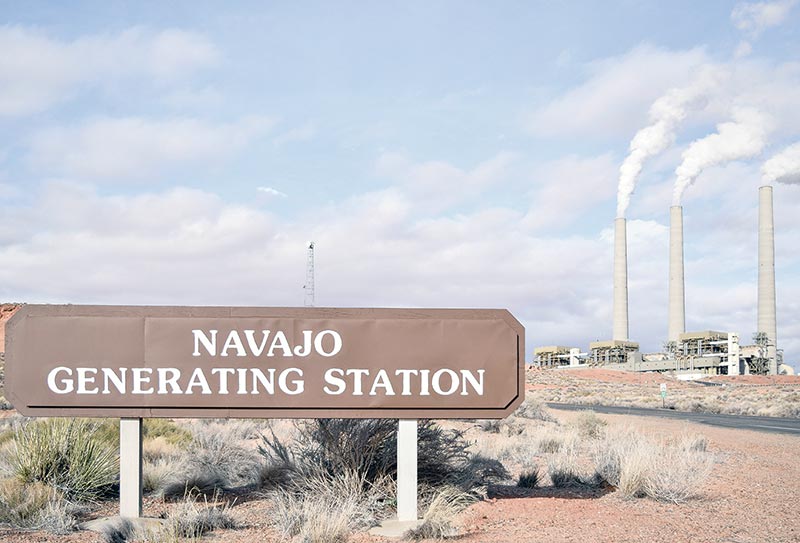
Potential buyer found for NGS

Navajo Times | Krista Allen The Navajo Generating Station near Page, Arizona, could shut down this year, taking more than 1,000 jobs with it.
CHINLE
The Navajo Nation has identified a potential buyer for the Navajo Generating Station that would allow the generating station, which along with the Kayenta Coal Mine generates about a third of the Navajo Nation’s budget and 80 percent of the Hopi Tribe’s, to operate beyond the projected closing date of 2019.

Navajo Times file photo
The Navajo Generating Station near Page, Arizona.
“Negotiations with Avenue Capital as the new potential owner and Middle River Power as the new potential operator have begun,” according to a joint press release from the Navajo Nation Council and the Office of the President and Vice President.
The release also states the Hopi Tribe is in agreement with selling the plant to keep it open.
According to Avenue Capital Group’s website, the group is “pioneers in the distressed debt market” and its partners have “successfully invested in the public and private debt and equity securities of distressed companies across a variety of industries for over two decades.”
Middle River Power, according to its website, is an “asset management platform focused on U.S. power generation assets” with 2,000 megawatts of electrical generation facilities, including natural gas, coal, geothermal and solar, in California, Maryland, Virginia and West Virginia.
President Russell Begaye cautioned that the sale is far from a done deal. “This selection is a preliminary stage of the process,” he stated in the press release. “No contracts have been signed.”
Meanwhile, environmental groups that have opposed the continued operation of the plant have written a letter to the Secretary of the Interior to confirm that any efforts to operate the plant beyond the closing date of 2019, when the current owners will pull up stakes, would be subject to the provisions of the National Environmental Protection Act. This would include finishing an environmental impact statement that was aborted by the Bureau of Reclamation after the current owners announced exit plans last year.
The only way to avoid that, said Thomas Young, deputy press secretary for the Sierra Club’s Beyond Coal Campaign, is for Congress to “make an end-run” around the regulations by exempting the transaction from NEPA’s mandated public disclosures.
“If you have to scrap NEPA in order to save a coal plant, then you’re basically sacrificing human beings for profit,” said Nicole Horseherder of Tó Nizhóni Ání. “NGS is not worth that.”
However, keeping the plant alive “will ensure continued payment of royalties to both the Navajo Nation and the Hopi Tribe, and secure many jobs,” the release states.
To read the full article, pick up your copy of the Navajo Times at your nearest newsstand Thursday mornings!
Are you a digital subscriber? Read the most recent three weeks of stories by logging in to your online account.







 Highway 264,
Highway 264, I-40, WB @ Winslow
I-40, WB @ Winslow